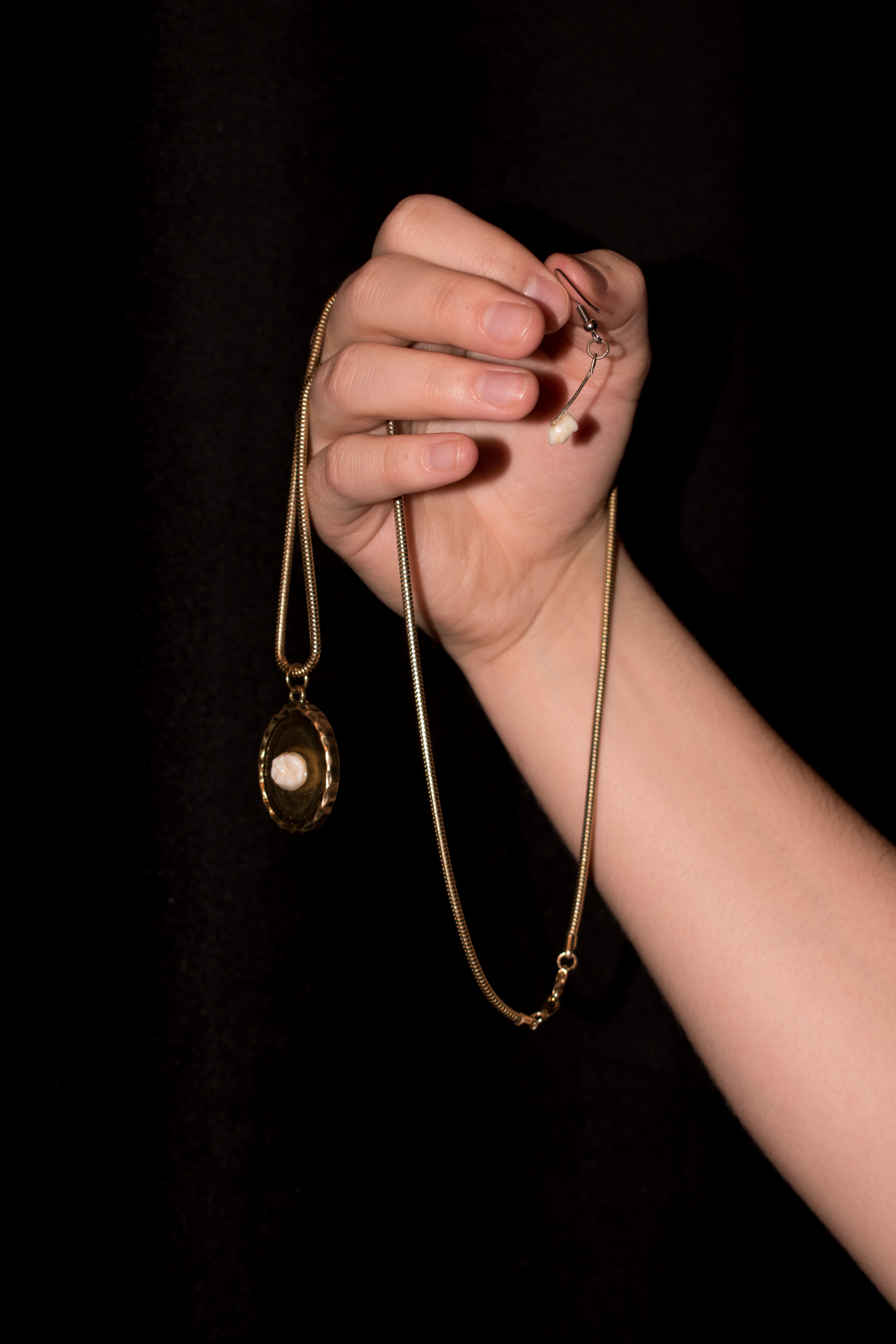Faces + Spaces: Mikey Walden
Photographed by Grace Deng
Mikey Walden’s quirky and colorful clothes stand in contrast to the heavy curtains and plain black floors of a black box theater in the Virginia Wadsworth Wirtz Center. Still, black boxes like these are their favorite spaces on the Northwestern University campus, precisely because they are blank slates.
“I have, in these rooms, had classes. I’ve had rehearsals. I’ve had dance calls. I have laid on the floor and played music over the speaker system and processed my emotions. I have written musicals. I have made an exhibit about gender in one of them,” Walden says. “I love the spaces for what they can be filled with, you know?”
Walden is a junior theatre major and gender studies minor at Northwestern. Just as they find meaning in the emptiness of the black boxes, Walden also sees the deeper layers of every aspect of life, including how their struggles as an artist intersect with those of their nonbinary identity. Like gender and sex, theater can seemingly control one’s body, they say.
“Either individual productions or roles or the general sentiment of the community can literally control your weight, your hair, whether or not you get tattoos, how straight and white your teeth are, what you do with your body hair,” Walden says. Thus, it was a pivotal moment for Walden when they first shaved their head during their freshman year of college.
“Now I have easily visible tattoos, and I keep my hair short, and I grow out all my body hair and generally dress masc and am a soprano and am 5-foot-3. And that means that I don’t have a lot of professional opportunities,” Walden says.
It’s a sad reality. According to ProductionPro’s yearly report, Broadway by the Numbers, 0.27% of titled characters were “nonbinary plural” and 7.1% were of “unspecified gender” in 2019’s Broadway season. That doesn’t leave much room for visibly and proudly nonbinary actors like Walden. “I basically had to make the decision to cut myself off from a potential professional career as an actor,” they say.
Though they still intend to perform, Walden also has a knack for writing musical theater.
“This year, I intentionally shifted my focus to primarily pursue writing opportunities,” Walden says. “I’m not acting again for the rest of the year. And I’m hopeful that I can, one, learn to become a better writer, and two, write things that expand who gets to be an actor because there’s such a narrow category.”
Walden’s challenging of the conventions of theater is matched by their exploratory sense of fashion, which reflects the unique situation of dressing as a nonbinary individual.
“Clothing is really a fraught space for trans people,” Walden says. “I am mad at the gender binary for restricting what clothes I can wear to be perceived as the gender I want to be perceived as.”
Walden describes their style as playful, thrifty and “a gentle little ‘fuck you’ to the gender binary and to richness and consumerism.” Their favorite pieces include a camouflage pair of overalls, a head-to-toe fruit-patterned outfit and earrings made from their own baby teeth.
“My fashion inspirations are children who get to dress themselves and cool grandparents,” Walden says.
No matter the outfit, Walden always has a carabiner hanging from their pants, usually with a Swiss Army knife attached. Their personal favorite knife is engraved with the words “Tough Guy,” a message with particular resonance for them.
“It’s not difficult to recognize that I am a small, gentle person. I do like to think that I am also genuinely a tough guy, but generally reference myself as a tough guy facetiously, because I like destabilizing categories of gender,” Walden says. They plan to get the phrase tattooed on their thigh in the future.
Walden came out as nonbinary a year ago, but has always had a complicated relationship with gender and fashion.
“Femme aesthetics are something that I’ve always had a really weird relationship with and have at times exulted in and at times been terrified of,” Walden says.
Feminine clothing is complex for Walden, but masculine clothing is no less problematic.
“When I am dressing my most masc, while I would love to think of that as just a fun, playful expression of my gender fuckery — which it often is — it is also, in a way, to conceal my body, to divert attention from parts of my body,” Walden said.
So, how does one walk the line of the gender binary? There’s no perfect path, Walden says.
“Lately, I’ve been trying to give myself more space to look femme. But I’m not on [testosterone hormone therapy], and it does feel like I’m erasing myself when I don’t provide a clear visual indicator for people to second guess my gender.”
It’s easy to get bogged down in the complicated world of sex and gender, but when it comes to fashion, Walden makes it clear that it’s all about having fun.
“I would love for the fashion world to view clothing and style not as a performance of status, but a tool for exploration and expression,” Walden says. “I think in general, we all need to take ourselves way less seriously.”



